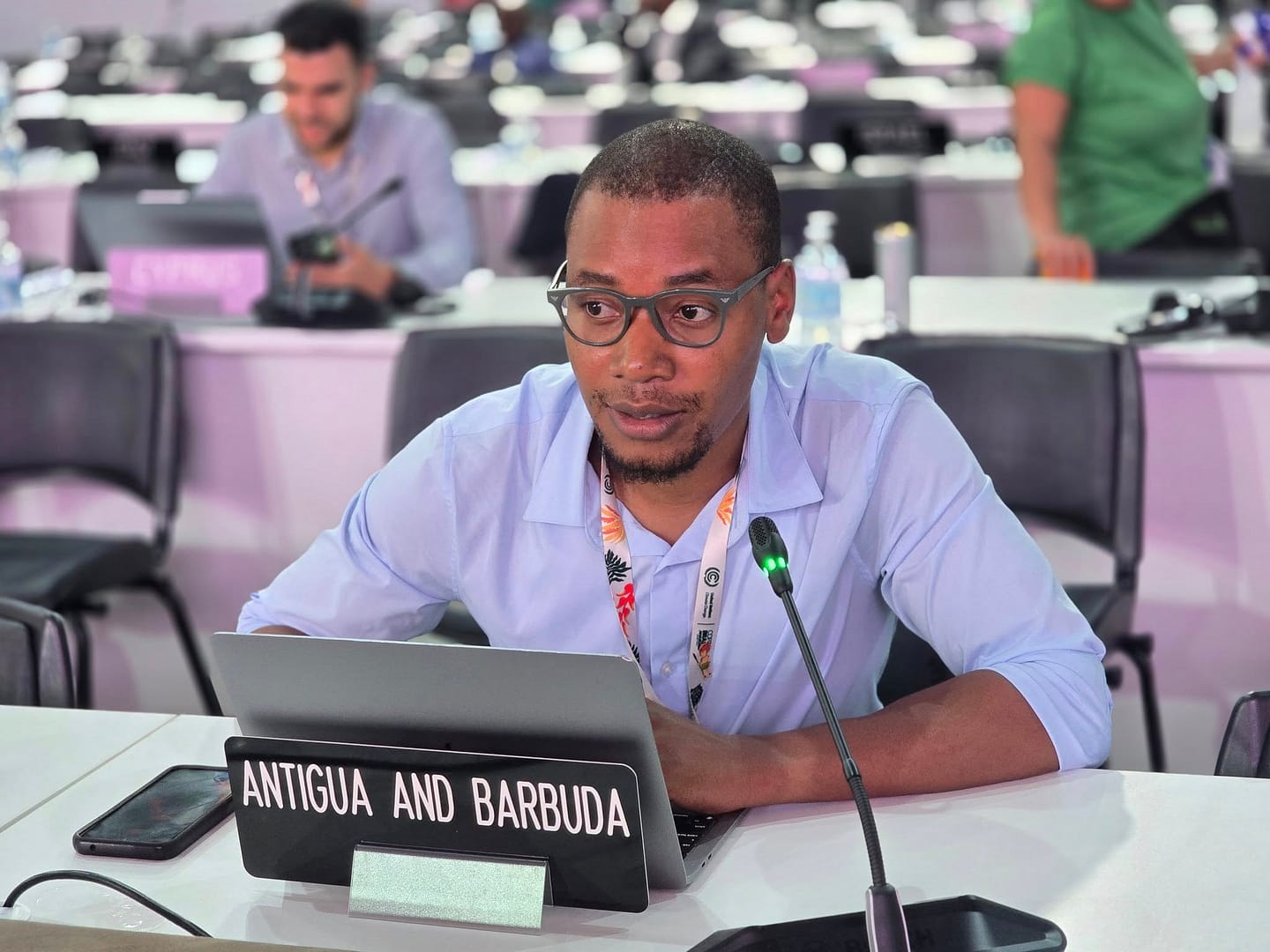
In a week where climate truth felt like it was fighting for oxygen, Arry Simon who is the Climate Assessment Officer at the Department of Environment and the Alliance of Small Island States (AOSIS)’s lead coordinator on Research and Systematic Observations (RSO)—stepped forward with a sharp, uncompromising message: the science must stay front and center, and small islands won’t sit quiet while timelines slip.
Speaking at the close of negotiations, Simon did not mince words. He flagged deep disappointment over the decision to defer the Periodic Review (PR)—a core process that benchmarks global progress against the Intergovernmental Panel on Climate Change (IPCC)’s best available science and the 1.5 degrees Celsius (1.5°C) long-term global goal—to the 31st Conference of the Parties (COP31). The delay, he underscored, undermines a critical accountability mechanism that vulnerable nations depend on.
“This review is not just a technical tick-box exercise,” Simon emphasized. “It’s a lifeline. We fully expect the decision to continue the PR to be taken next year at COP31.”
But it wasn’t all gridlock. Simon welcomed the successful conclusion of the Research and Systematic Observation (RSO) agenda item, praising its reflection of the rapidly evolving climate science landscape. Key takeaways included acknowledgment of the worsening state of the global climate system, advances in attribution science, and the role of systematic observation in everything from mitigation to adaptation, early warning systems, and loss and damage response.
AOSIS also welcomed the spotlight on the Systematic Observations Financing Facility (SOFF), which prioritizes the needs of Small Island Developing States (SIDS) and Least Developed Countries (LDCs)—countries that rely on better data to save lives and make long-term policy decisions.
Nevertheless, Simon raised a red flag: negotiators were unable to properly acknowledge the role of the IPCC—the world’s best source of scientific consensus—despite this being an uncontested foundation of the United Nations Framework Convention on Climate Change (UNFCCC). Even more troubling, the process failed to explicitly recognize the “extremely alarming” indicators from recent climate assessments, including that the last decade was the warmest on record and sea-level rise is accelerating, even though long-term global warming has not yet exceeded 1.5 degrees Celsius (1.5°C).
“The way fundamental truths—scientific truths and lived truths—were challenged in the room is concerning,” Simon said. “Especially at a COP being called the ‘COP of Truth.’ We expect better.”
The message landed with clarity: AOSIS is watching, AOSIS is engaged, and AOSIS refuses to let scientific integrity become a negotiation casualty.

As the world pivots toward COP31, Simon made it clear the bloc will be pushing even harder. Because for the islands on the frontline, every year of delay is another year borrowed from a future that’s running out of buffer.
Advertise with the mоѕt vіѕіtеd nеwѕ ѕіtе іn Antigua!
We offer fully customizable and flexible digital marketing packages.
Contact us at [email protected]















